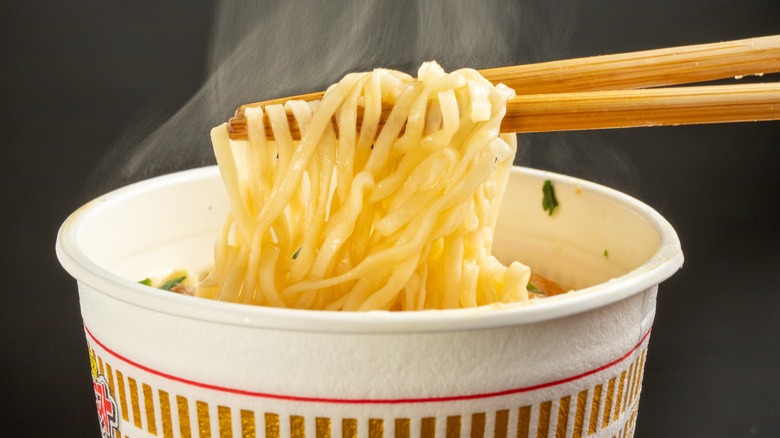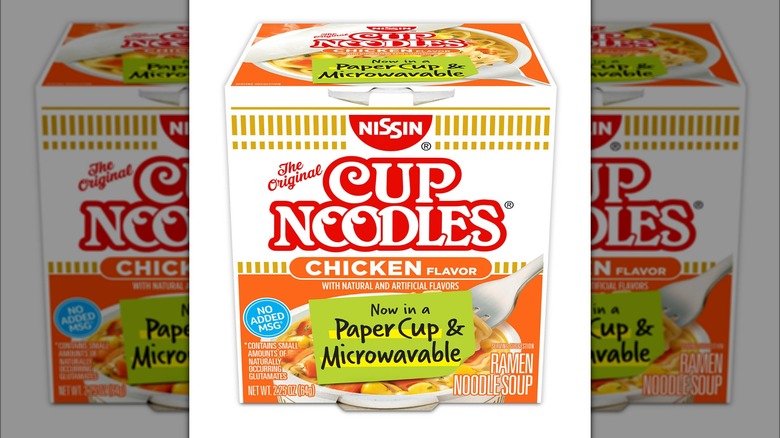Cup Noodles Will Be Microwavable For The First Time In 2024
College students, rejoice. The lifeblood of young professionals and starving artists everywhere is about to get even more convenient. Next year, Cup Noodles will be microwavable.
According to an official press release by Nissin Foods U.S.A., a new paper cup will replace the iconic ramen's polystyrene version starting in early 2024. Previously, Cup Noodles fans have had to boil water separately and pour it over the dehydrated noodles. Now, for the first time since Cup Noodles hit the U.S. market in 1973, folks will be able to slam that lovin' cup-full in the microwave in office break rooms, college dorms, teacher's lounges, and other on-the-go "dining rooms" everywhere. All that stands between consumers and a warm meal is two minutes and 15 seconds.
Fans can rest assured that Cup Noodles will be keeping the same beloved logo and aesthetic design. The noodles can still be packaged, prepared, and served all in one cup, but the innovative design is about to get even more innovative. In addition to shifting to paper, the new packaging will be made using 40% recycled fiber and will ditch the plastic sleeve altogether, totally polystyrene-free.
The cups really add up over time. Nissin Food Holdings sold over 50 billion Cup Noodles in 2021 alone — which translates to a lot of disposable packaging for customers to discard and send to the landfill. The new packaging is part of a larger shift toward sustainability by the company.
No plastics here, officer
In what the company is calling its Earth Food Challenge 2030, Nissin aims to minimize CO2 emissions by 30% by 2030 and eliminate them entirely by 2050. Michael Price, President and CEO of Nissin Foods U.S.A., considers the updated paper packaging "a key step in our environmental commitment," via the press release.
The update has been a long time coming. Nissin Food Holdings first announced plans to make its high-convenience Cup Noodles more environmentally friendly back in 2019. The empty Cup Noodles containers couldn't be conventionally recycled due to the oil residue left inside post-cooking. So, Nissin invented an innovative "thermal recycling" plan to fuel its Tokyo headquarters using energy generated from burning used noodles packaging.
Later, in 2021, Nissin replaced its plastic Cup Noodles lids with double-flap paper lids and axed the lid-closing sticker entirely. It may seem like a small change, but according to Haruka Aoki (chief of Nissin Food Holdings' corporate communications division), the swap reduced the company's plastic waste output by roughly 33 tons yearly.
Food brands worldwide are swapping petrochemical-based plastic packaging for reusable alternatives. The initiative is even making its way into U.S. legislation: The governments of California, Connecticut, and New York, among others have already banned single-use plastic grocery bags statewide. Last year, Canada banned six common single-use plastics, aiming to produce zero plastic waste by 2030. Shifts like Nissin's noodles reflect a renewed international commitment to sustainability, especially in the convenience sector.

